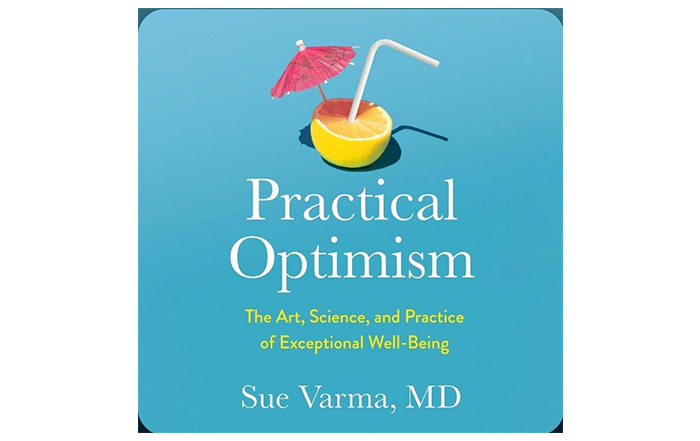Where to find this idea:
Practical Optimism: The Art, Science, and Practice of Exceptional Well-Being by Sue Varma M.D.
The book Practical Optimism has been on our radar for some time, but when we started writing this, we realized it was actually inspired by one of the messages you sent to us about the dynamic in your relationship — one partner being an optimist and another a realist.
Well, practical optimism is as if an optimist and a realist had a baby who’s gotten the best traits of both. A baby who has a positive and hopeful mindset, but also understands that life has inevitable ups and downs, and proactively tries to solve problems and adapt.
But here is an interesting thing. Contrary to typical characterizations (optimists, pessimists and realists), practical optimism isn’t a personality, but rather a skill set for handling difficulties.
Scientists have identified long ago that optimists are born. Yes, optimism is a genetic thing associated with the oxytocin receptor gene. However, it’s now also known that genes play a much smaller role in this matter (about 25% of optimism is genetic, the rest is up to us). Being born as an optimist is not about being cheerful and bubbly or always looking at the bright side. It’s about being born with genes that confer important life skills — emotional regulation skills, coping skills, and interpersonal skills. For example, optimism is usually portrayed as toxic positivity and even denial of reality. Practical optimism is not good vibes only. It involves being open about what bothers you rather than sweeping it under the rug, which is a great coping mechanism.
The amazing thing about skills is that they can be learned, which means that practical optimism can be learned. But why bother learning it? Because practical optimism fosters resilience. It helps us cope with stress, maintain emotional stability during tough times, and build creative solutions. Consequently, this protects your health and well-being.
Sue Varma, the author of the book, used to work with 9/11 survivors. And it was then that she started understanding that practical optimism as a skill set helped people not only survive and bounce back from adversity, but thrive in the face of it.
So, here are a few important skills associated with practical optimism:
Processing your emotions
Finding or creating your purpose
A deep knowing of your self-worth
Focusing on things within your control
Adaptive problem-solving
Helping others and building relationships
Staying open and flexible

